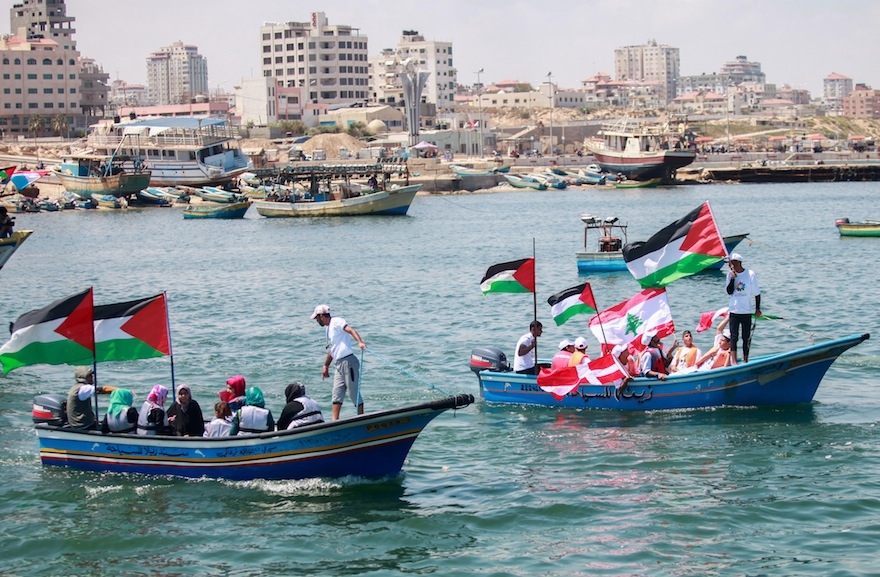Israel’s Security Cabinet approves Turkey reconcilliation deal
Published June 29, 2016

Gazans mark the fifth anniversary of the Mavi Marmara Gaza flotilla at the Gaza City seaport on May 31, 2015. (Aaed Tayeh/Flash90)
JERUSALEM (JTA) — Israel’s Security Cabinet approved the reconciliation agreement with Turkey.
The Security Cabinet voted 7 to 3 to approve the agreement after a more than four-hour discussion.
Defense Minister Avigdor Liberman, Education Minister Naftali Bennett and Justice Minister Ayelet Shaked voted against the deal. They opposed, in part, the payment of reparations to the families of the Mavi Marmara victims.
Relations between Israel and Turkey broke down in the aftermath of the Mavi Marmara incident in 2010, when Israeli commandos boarded and killed nine Turkish citizens in clashes on a boat attempting to break Israel’s Gaza blockade.
The Cabinet also decided to hold a discussion as soon as possible on the conditions of incarceration for Hamas prisoners in Israel as long as the issue of the bodies of Israeli soldiers Oron Shaul and Hadar Goldin and of Israeli citizens Avra Mangisto and Hisham Al-Said, who are being held in Gaza, is unresolved.
As part of the agreement, Turkey had committed to help pressure Hamas in Gaza to repatriate the dead soldiers and the Israeli citizens being held there.
Under the deal, Israel will create a $20 million humanitarian fund as compensation to the families of the Mavi Marmara victims, which would not be released until Turkey passes legislation closing claims against the Israeli military for the deaths. Netanyahu has apologized for the deaths, another Turkish condition for the resumption of diplomatic ties.
Turkey withdrew its demand that Israel halt its Gaza blockade, but Israel will allow Turkey to establish building projects in Gaza with the building materials entering Gaza through Israel’s Ashdod Port. The building projects reportedly include a hospital, power station and desalinization plant.














